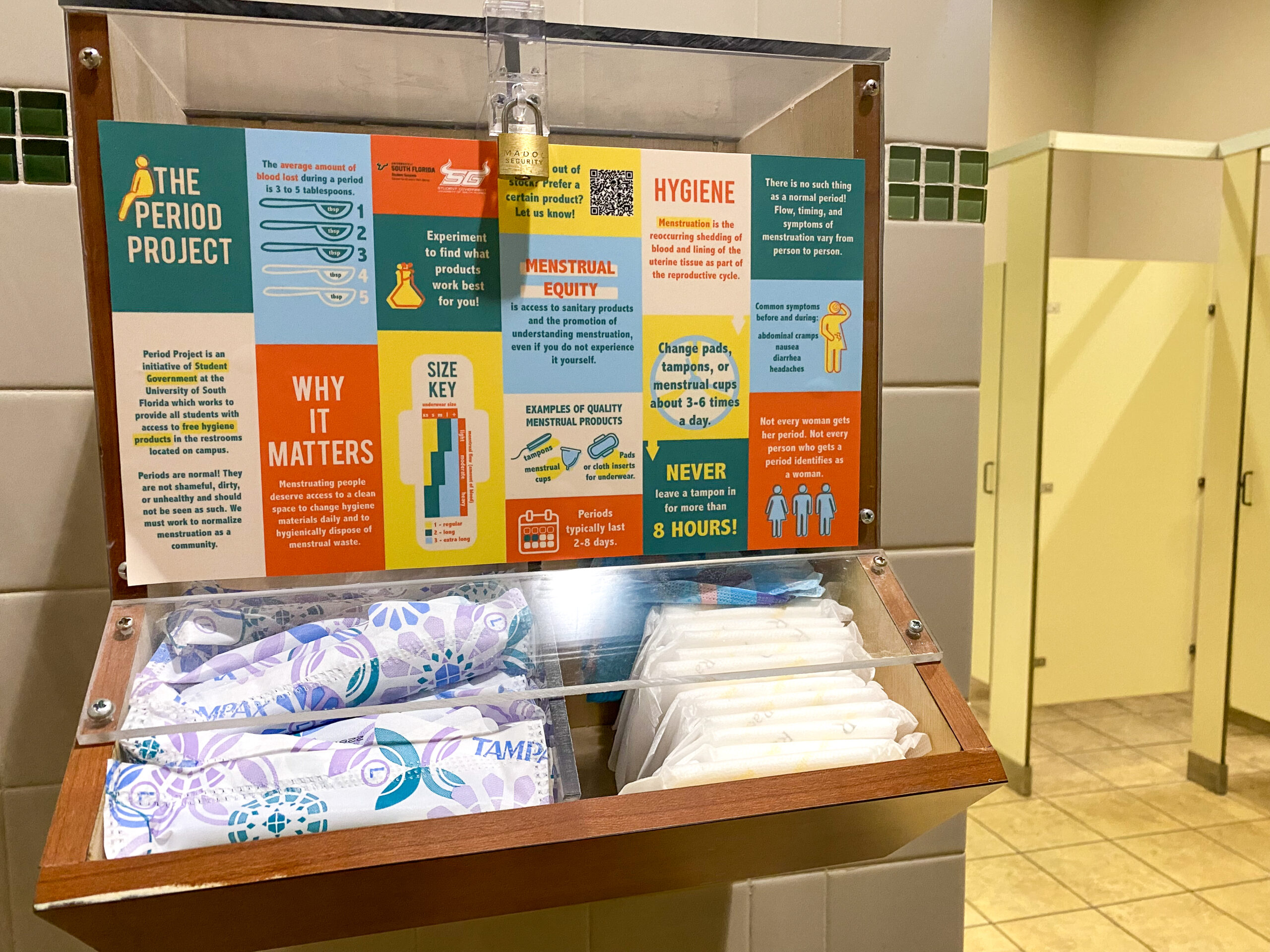OPINION: USF needs an alternative method for distributing menstrual products

Menstrual product boxes have been consistently found empty in USF bathrooms across campus, according to an April 11 article from The Oracle.
USF has attempted to combat period poverty with menstrual product boxes in bathrooms, but its system has not been working as the products are not in stock. In order to combat this issue, USF needs to implement organized and controlled strategies, like providing menstrual product kits at the Feed-a-Bull pantry, to ensure that menstrual products are easily accessible for students in need.
Period poverty – or the lack of access to menstrual products – is a serious societal problem, according to a February 2022 article from the Journal of Global Health Reports. This has become a serious issue as 14.2% of undergraduate women in the U.S. are experiencing period poverty, according to a December 2021 study by Frontiers in Public Health.
USF student government started an initiative called the Period Project in 2020. This initiative provides free menstrual products in attempts to decrease period poverty on campus, according to a November 2020 article by The Oracle.
Having easy access to menstrual products is extremely important for women as it can prevent infections from developing, according to a May 2022 article from The World Bank.
Providing free period products at USF is essential not only for the health of students, but for their academics as well. Because of a lack of menstrual products, 84% of students have missed class or know someone who missed class, according to a 2021 study by Thinx and PERIOD. This study included 1,010 students who menstruate.
“The lack of menstrual products has made it embarrassing and frustrating when I suddenly get my period and there are no products in the bathrooms,” said Megan Nahom, a USF freshman marketing major in an April 17 interview with The Oracle.
Nahom said she believes that providing these products is important because it is a basic necessity and women shouldn’t have to worry about bleeding through their clothes just because USF has not made it a priority.
Nicky Dawkins, an employee for the PERIOD advocacy group, has been pushing for schools to provide free menstrual products on campus,according to a December 2021 NPR podcast.
Those opposed to providing free menstrual products in public bathrooms believe that users may be stealing these products.
“I think it’s like toilet paper. We don’t go into public bathrooms and steal the toilet paper because we’re just like, it’s always there,” said Dawkins on the podcast.
USF student government director of diversity, wellness and engagement expressed that there is no restriction to how many products people in the bathrooms take, according to an April 11 article by The Oracle.
However, it is not an excuse to stop providing them to students and faculty. Period poverty continues to be a problem in today’s society and by continuously providing these products, period poverty at USF can decrease.
USF should provide free menstrual products at the Feed-a-Bull food pantry as other universities, such as the UCF, have done. By providing menstrual products in locations other than bathrooms where any person can take products, the pantry would be able to provide a more organized method of distributing these free products.
This distribution method has proven to be beneficial for UCF attendees, as students line up to receive these products, according to an April 2022 article from Nicholson Student Media.
USF needs to provide another method to distribute menstrual products to their students, such as creating free period product kits at the Feed-a-Bull food pantry, as a way to combat period poverty and to ensure the health of its students.







